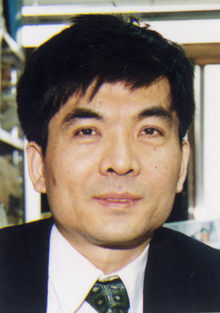 |
Whatever goal they set, progressives need to make it clear that they are not absolutely opposed to opening markets. They must not ignore the fact that it was through reform and opening the market that our economy achieved high growth. It comes down to a question of exactly how to open up. Was not the colonization that took place at the end of the Joseon period and the financial crisis of 1997 the result of sudden economic opening without first carrying out internal reforms? If the progressives want to convince the country of their position, they need to state that the goal is to only prevent a market opening that would lose more than would be gained. Second, they need to be innovative about their methods. They will be unable to achieve their goals unless they have improved logic and organizational strength, superior to those who are pushing to have the free trade agreement (FTA) with the U.S. signed. Opposition to the FTA has provided a rare opportunity to bring the people’s movement (minjung undong) and the civic movement together for the same cause. However, both lack the strength they once enjoyed, because of revelations of corruption at some of the big conglomerates’ unions and problematic behavior among some in the civic movement. Merely being forceful, as in during the struggle against military dictatorship in the past, will not be successful. The progressives need wisdom and flexibility. In terms of organizational strength, they need to create a strong link between the parties with a direct interest in the outcome of the negotiations, and actively rally for the support of those who might be sympathetic. Even if they are going to forget about a president who has decided he is going to turn his back on those who supported him, progressives need to make a concentrated effort to win over members of the ruling and opposition parties. How about having those who intend to run for president make this an issue? In terms of logic, experts in the various related areas need to be able to refute the arguments being made by supporters of the current process and be specific as they do so. Saying that an FTA is bad because it is neoliberalism does not really mean much to the general public. Thirdly, progressives need to come up with doable alternatives. It is easy for these efforts to seem like blind rejection of change or collective self-interest if there is no suggestion made of what should be done instead. Progressives need to show that, given the way the government is going about the negotiations, it is highly likely Korea will import only what is bad about the U.S.-style system. Then, the progressives need to suggest an alternative route through which Korea could do some benchmark negotiation, along with the best of America and Scandinavia. Progressives need to explain how trying to restructure the economy by borrowing from the U.S. structure is like the New Right’s argument that colonization modernized Korea. They need to instead present a new plan for restructuring based on social compromise. The negotiations are currently based on the "leaving Asia theory" (in Japanese, tararon datsu-a ron), a model of governmental conduct that holds distain for Asian practices and is partial to Western notions. Progressives need to present South Korea with a way to develop relations with Japan, China, and eventually North Korea that are in balance with relations with the U.S. In short, progressives need to establish a strong, appropriate goal, pressure the government with organizational strength and logical arguments, and win over the country with attainable alternatives. Right now the progressives are struggling, just like the administration of President Roh Moo-hyun. Criticizing him will not resolve the problem. The FTA negotiations could be a good opportunity for the progressive camp to be reborn. Will they not be able to restore their position as a force for hope if they establish their strength and deal with the matter in a straightforward manner?





